Belgium
The Beginners Travel Guide to Belgium offers a comprehensive overview of practical information, captivating destinations, optimal timing for visits, vibrant festivals, and the latest articles on the enchanting country of Belgium.
Belgium is a small yet charming country in Western Europe. With its unique blend of French, Dutch, and German influences, it has a rich history, beautiful architecture, and delightful cuisine. Despite its size, there are many interesting places to visit in Belgium that are sure to captivate any traveller.
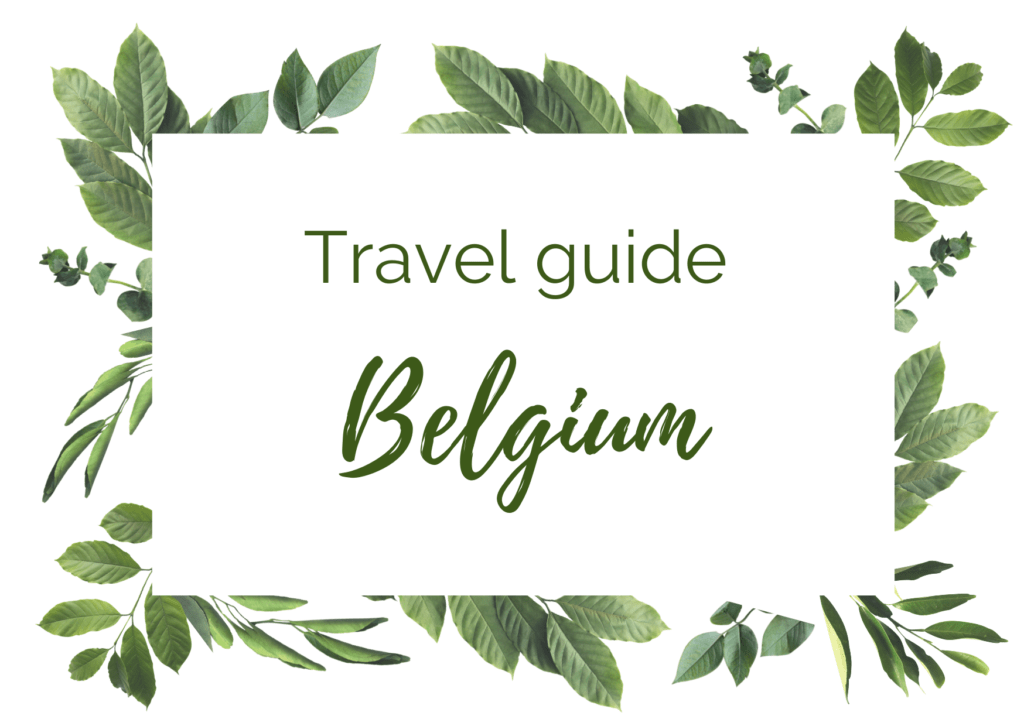
Interesting places to visit
Brussels
No trip to Belgium would be complete without a visit to its vibrant capital city, Brussels. Known as the headquarters of the European Union, Brussels offers a mix of modern and historic attractions. Marvel at the grandeur of the Grand Place, a stunning square surrounded by ornate buildings including the City Hall. Explore the iconic Manneken Pis statue and sample some delicious Belgian waffles and chocolate.
Bruges
Often referred to as the “Venice of the North”, Bruges is a picturesque medieval city with winding canals, cobbled streets, and charming market squares. Take a boat ride along the canals to see the city from a different perspective or climb to the top of the Belfry for panoramic views. Don’t forget to indulge in some local delicacies such as Flemish stew and beer.
Ghent
Another must-visit city in Belgium is Ghent, a university town known for its lively atmosphere and impressive architecture. Take a stroll through the medieval center and marvel at the Gothic-style St. Bavo’s Cathedral and Gravensteen Castle. For art lovers, there is also the renowned Museum of Fine Arts showcasing works by Flemish masters such as Van Eyck and Rubens.
Antwerp
Known as the diamond capital of the world, Antwerp is a bustling port city with a rich cultural heritage. Visit the stunning Cathedral of Our Lady and explore the historic Grote Markt with its ornate guildhalls. Fashion enthusiasts will also enjoy browsing through the designer boutiques in the trendy neighborhood of Het Zuid.
And of course, don’t miss the chance to try some mouth-watering Belgian fries and mayonnaise.
Ardennes
For nature lovers, the scenic Ardennes region is a must-visit destination in Belgium. This hilly and forested area is perfect for hiking, cycling, and even kayaking on the picturesque rivers. You can also visit historic castles such as the Castle of Bouillon and the Castle of La Roche-en-Ardenne, or take a break in one of the charming villages scattered throughout the region.
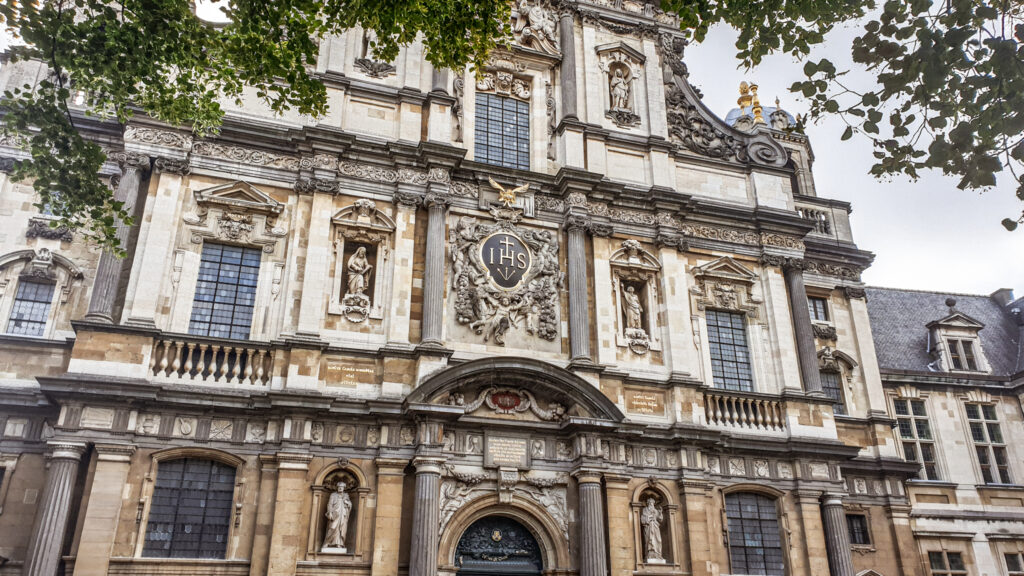
Festivals
Belgium, a small country located in Western Europe, is known for its rich culture and traditional celebrations. The country celebrates a variety of festivals and holidays throughout the year, making it an ideal destination for travellers looking to experience unique cultural traditions.
Traditional Festivals
One of the most famous traditional festivals in Belgium is Carnival. This festive event takes place in February and is celebrated in cities across the country, with the largest celebrations held in Binche, Aalst, and Dunkirk. During Carnival, colourful parades, elaborate costumes, and lively music fill the streets as people come together to enjoy this pre-Lenten celebration.
Another popular festival is the Ommegang Pageant. This event, held in Brussels every July, commemorates the arrival of Emperor Charles V in 1549. The pageant features a grand procession with participants dressed in historical costumes, followed by a reenactment of the emperor’s arrival at the Grand-Place. Since 2019, it is recognised as a Masterpiece of the Oral and Intangible Heritage of Humanity by Unesco.
Music Festivals
Belgium is also known for its vibrant music scene and hosts several annual music festivals. One of the most famous is Tomorrowland, a massive electronic dance music festival held in Boom every July. This world-renowned festival attracts music lovers from all over the globe and features top DJs and artists.
Another popular music festival is Rock Werchter, which takes place in June in the town of Werchter. This four-day event showcases a diverse lineup of international bands and artists, making it one of the largest and most popular rock festivals in Europe.
Culinary Festivals
In addition to its vibrant music and traditional festivals, Belgium also has a strong culinary culture. The country is famous for its delicious chocolate, waffles, and beer, which can be enjoyed at various food festivals throughout the year.
One notable festival is the Chocolate Festival, Salon Du Chocalate. It is organised in Brussels every February. Here, visitors can indulge in a wide variety of high-quality Belgian chocolates and attend workshops and demonstrations by master chocolatiers.
Another popular event is the Belgian Beer Weekend, held in Grand-Place each September. This three-day festival showcases over 400 different types of beer from breweries all over Belgium, giving attendees the opportunity to taste and learn about the rich history and brewing techniques behind each variety.
Art Festivals
Belgium is home to numerous art festivals, celebrating different forms of artistic expression. One such event is the Brussels Film Festival, which takes place in June and features a diverse selection of international films. Visitors can also attend workshops and meet renowned filmmakers at this festival.
Another cultural highlight is the Ghent Light Festival, which occurs every three years in the historic city of Ghent. This five-day event features stunning light installations and projections, transforming the city into a magical wonderland.
Best time to go
But when is the best time to visit this hidden gem? Well, the truth is that Belgium has something to offer all year round. Let’s explore!
Spring: March – May
Springtime in Belgium brings beautiful blooming flowers, making it the perfect time to visit for nature lovers. The weather is mild with occasional rainfall, but that shouldn’t stop you from exploring the charming cities of Brussels, Bruges, Ghent or Leuven.
Summer: June – August
Summer is the peak tourist season in Belgium, as the weather is warm and sunny. This is the ideal time to visit if you want to experience outdoor activities like hiking, cycling or kayaking. You can also attend one of the many music festivals, such as Tomorrowland, or indulge in some delicious Belgian waffles and beer at a local street market.
Autumn: September – November
Autumn in Belgium is simply stunning, with the leaves changing colours and creating a picturesque landscape. The weather starts to cool down, but it’s still pleasant enough to enjoy outdoor activities. This is also the time for foodies to visit, as autumn marks the start of the game season, with specialties like wild boar.
Winter: December – February
Winter in Belgium is a magical time with festive Christmas markets and ice-skating rinks popping up all over the country. The cities are beautifully decorated with lights and decorations, making it a perfect place to get into the holiday spirit. You can also warm up with some delicious hot chocolate or Belgian beer while enjoying the cozy atmosphere of a traditional Belgian cafe. And if you’re lucky, you might even experience a white Christmas!
But don’t let the winter weather stop you from exploring. You can still visit museums and galleries, indulge in some retail therapy at designer boutiques or enjoy a delicious meal at a Michelin-starred restaurant.
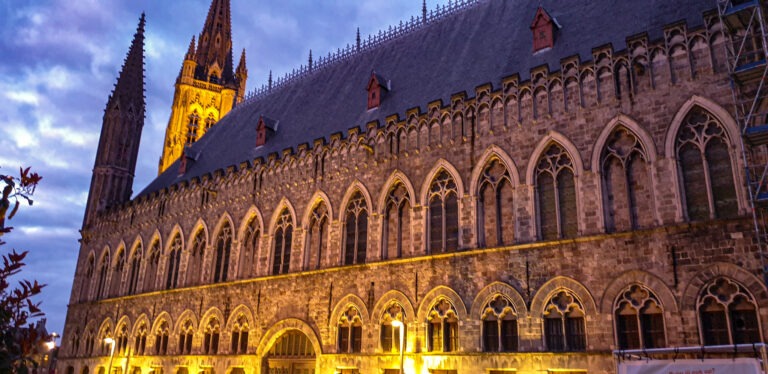
Practical info
Currency: Euro €
ATM:
In Belgium, using ATM’s is a convenient and easy way to access your money. With the country being one of the most advanced in terms of technology, you can expect to find ATM’s pretty much everywhere in major cities and towns. Whether you are travelling through the charming cobbled streets of Bruges or exploring the vibrant city center of Brussels, you won’t have to worry about withdrawing cash in Belgium.
When it comes to using ATM’s in Belgium, there are a few things you should keep in mind. Firstly, most ATM’s accept all major international credit and debit cards such as Visa, MasterCard and American Express. However, it is always advisable to check with your bank regarding any transaction fees or foreign exchange charges that may apply.
Secondly, it is important to note that ATM’s in Belgium only dispense euro’s, which might not be ideal if your home currency is different. In such cases, you can always opt for a currency exchange service or withdraw larger amounts to minimize transaction fees.
Another thing to keep in mind while using ATM’s in Belgium is to be aware of your surroundings and take necessary precautions to ensure the safety of your transactions. Always use ATM’s located in well-lit areas or inside a bank, and avoid withdrawing large amounts at once.
Languages: French, Dutch (Flemish) and German.
Religion: Catholic (61%), no religion (28%) and Islam (7,5%).
Capital city: Brussels
Visa:
Visa Exemptions: Citizens of certain countries are exempt from obtaining a visa for short stays in Belgium (less than 90 days). These include citizens of the European Union (EU) and European Economic Area (EEA), as well as citizens of Switzerland, Australia, Canada, Israel, Japan, New Zealand, South Korea, the United States and several other countries.
Schengen Visa: If you are not eligible for a visa exemption, you will need to apply for a Schengen Visa. This type of visa allows you to travel to and within 26 countries in the Schengen area, including Belgium. You can apply for a Schengen Visa at the Belgium embassy or consulate in your home country.
Local SIM Card:
While buying a SIM card in Belgium is relatively straightforward, here are some tips to keep in mind for a smooth experience:
- Make sure your phone is unlocked: Most prepaid SIM cards in Belgium only work with unlocked phones. If your phone is locked to a specific carrier, you may need to contact them to unlock it before using a Belgian SIM card.
- Bring your passport: To purchase a SIM card in Belgium, you will need to show a valid form of identification, such as your passport.
- Be aware of top-up options: Most prepaid SIM cards in Belgium require manual top-ups through vouchers or online. Make sure to familiarize yourself with the process and have enough credit on your account to avoid any disruptions in service.
- Check for roaming options: If you plan on travelling to other countries in Europe, it is essential to check if your Belgian SIM card offers roaming options and at what rates. This will help avoid any unexpected charges.
- Understand the coverage: Different providers may have varying levels of coverage, so it’s worth doing some research before purchasing a SIM card. Keep in mind that rural areas may have weaker signals compared to urban areas.
- Consider data-only SIM cards: If you primarily use data for communication, consider purchasing a data-only SIM card. These are usually cheaper and offer larger data packages compared to traditional prepaid SIM cards.
There are several providers that offer different plans and prices, so it’s important to do some research before making a decision. Some of the most popular providers in Belgium are: Proximus, Base and Mobile Vikings. The last one is my personal favourite.
Country Code: +32
Time: (GMT+1) Central European Standard Time
Official Tourism Website: Get information about what to see and places to visit via the official Tourism website of Belgium, Visit Belgium.
Practical info: A long-term trip or holiday can be quite a challenge. Where does one even begin? How can you access the most relevant information? Look no further! Check out the articles below. Starting with the comprehensive “Ultimate Guide for Planning a Long-term Journey.” This guide is immensely helpful, even if you’re just planning a one week holiday. Additionally, we’ll walk you through creating a travel budget, crafting a practical packing list (avoiding overpacking, of course), and even share some of our favourite travel apps. Bon voyage!.
Sustainable travel: Sustainable travel, also known as responsible or eco-friendly travel, is a type of tourism that aims to have a positive impact on the environment, society and economy. It involves making conscious choices and taking actions to minimize any negative effects on the destinations we visit.
Cultural travel: Cultural immersion is about fully experiencing and engaging with the local culture. It goes beyond mere observation and learning about traditions, customs, and beliefs. It involves active participation, such as trying new cuisines, attending cultural events or festivals, learning the language, and interacting with locals. By embracing this experience, one can truly appreciate and understand the richness of different cultures.
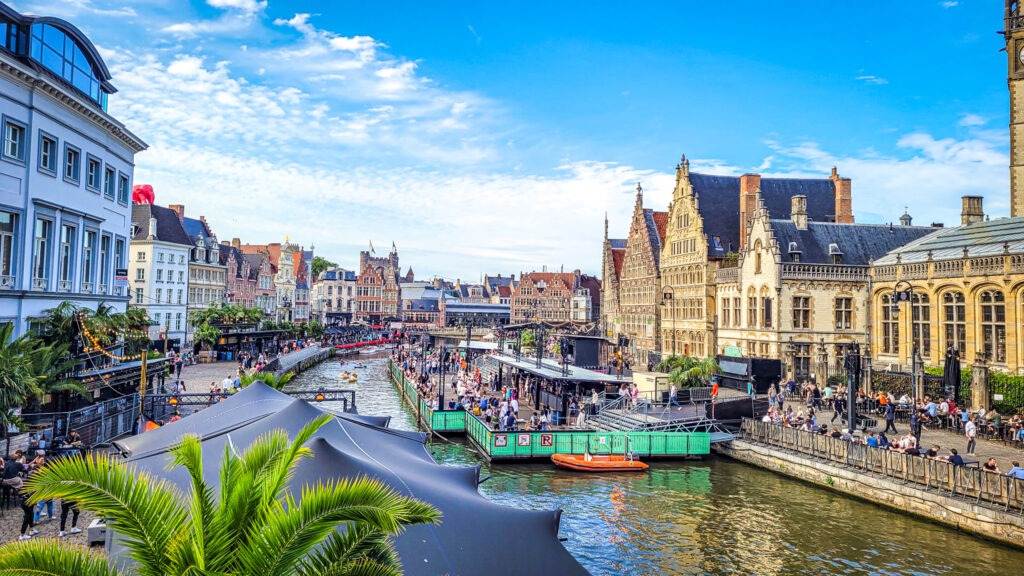
Public Transport
Trains
The national railway company of Belgium, known as SNCB (French) or NMBS (Dutch) depending on the region, operates an extensive network of trains connecting major cities and smaller towns. The trains are fast, frequent, and (not always) reliable, making them a popular choice for both locals and tourists. The rail network also extends to neighbouring countries like France, the Netherlands, Germany, and Luxembourg.
Buses
Buses are another convenient mode of transportation in Belgium. De Lijn is the main bus operator in Flanders region while TEC covers the Wallonia region. Buses are a great option for shorter distances or reaching places not accessible by train. They also offer a more affordable alternative to trains.
Trams and Metro
Belgium’s capital city, Brussels, has an extensive network of trams and metro lines operated by STIB/MIVB. These modes of transportation are efficient and can take you to almost any part of the city. Trams also operate in some other Belgian cities like Antwerp and Ghent.
Cycling
Cycling is a popular means of transportation in Belgium, especially in cities like Brussels and Antwerp. The country has well-maintained cycling paths, making it safe and convenient for cyclists. You can easily rent a bike from various rental companies and explore the cities at your own pace.
Car
If you prefer to have more freedom and flexibility during your travels, renting a car is also an option in Belgium. The country has a well-developed road network, making it easy to navigate. However, keep in mind that parking in major cities can be challenging and expensive. Read this article about renting a car in Belgium.
Walking
Last but not least, walking is also a great way to explore Belgium. The country has beautiful architecture, charming streets, and picturesque landscapes that are best appreciated on foot. Plus, walking allows you to soak in the local atmosphere and discover hidden gems along the way.
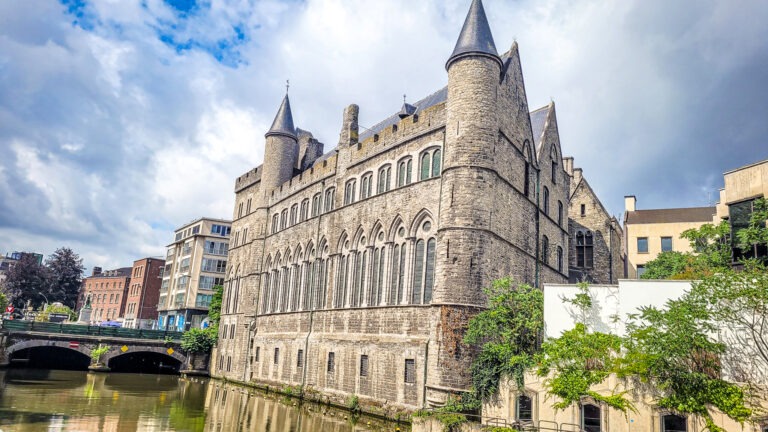
Latest Belgium Articles
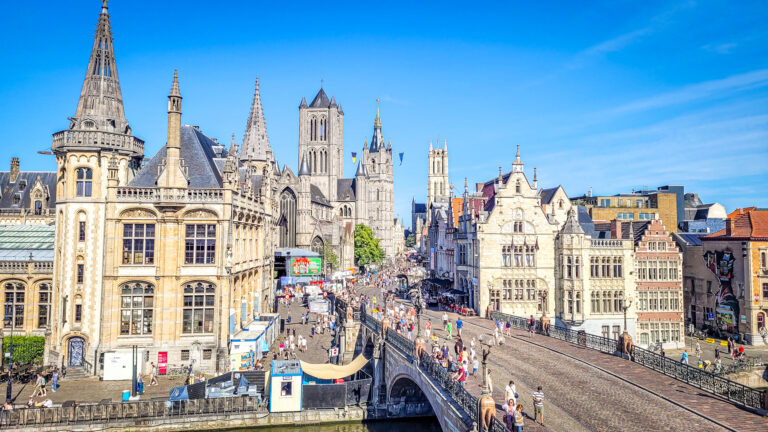
Monumental highlights to visit in Ghent, Belgium
Immerse yourself in the blend of architecture, culture, and charm. Explore the monumental highlights to visit in Ghent, Belgium.
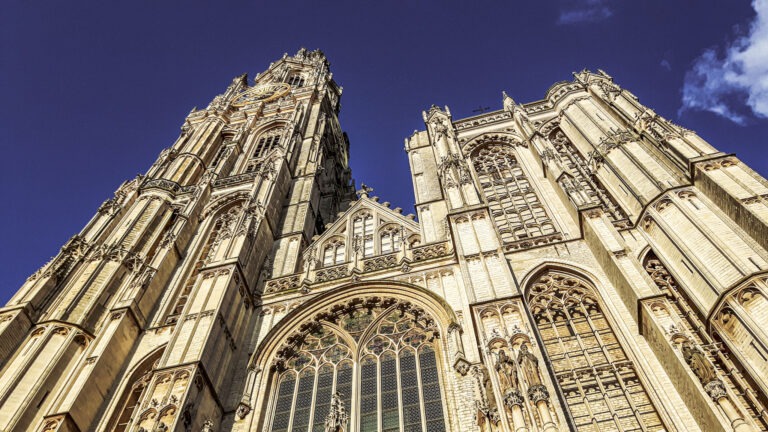
Fascinating heritage accommodations of Antwerp
Discover the fascinating heritage accommodations of Antwerp, Belgium. Whether you prefer a lavish 16th-century mansion or a cozy boutique hotel.
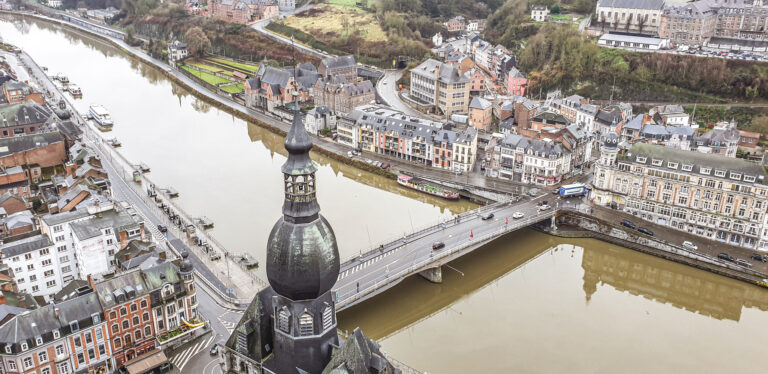
How to rent a car in Belgium
Discover everything you need to know about how to rent a car in Belgium in this blog post, including requirements, tips, and recommendations.
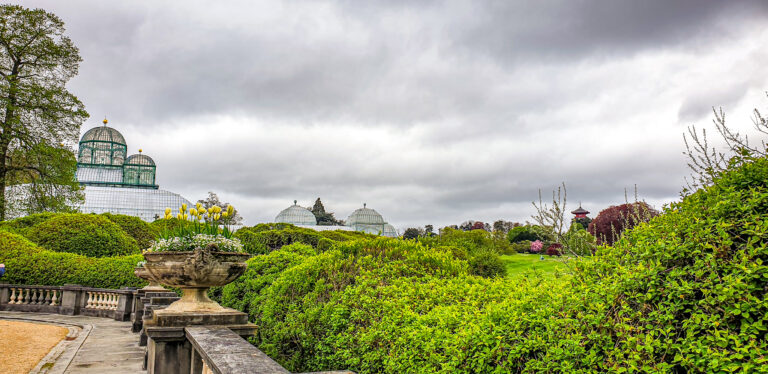
Discover the monumental Royal Greenhouses of Laeken, Brussels
The monumental Royal Greenhouses of Laeken, De Koninklijke Serres van Laken, are a part of the Royal Palace of Laeken in the northern part of Brussels. The monumental art nouveau greenhouses are designed by Alphonse Balat in 1874 on behalf of King Leopold II. The historical complex is partly heated
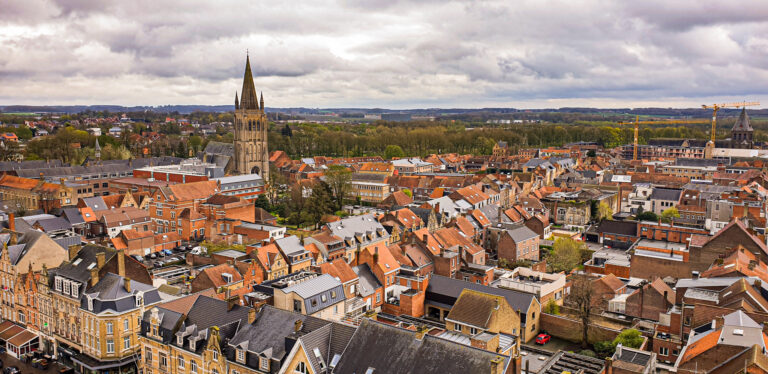
Monumental highlights of Ieper
The city of Ieper is located in Flanders in Belgium. One of most popular sites to visit is the In Flanders Fields Museum which narrates the invasion of Ieper during the First World War.

Virtual picture tour of Ieper
Ieper was an important medieval trading centre and the city is known for a long rich history. The city of Ieper was completely destroyed during the First World War. See how it is today.